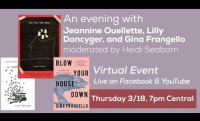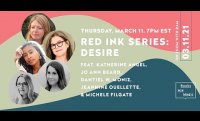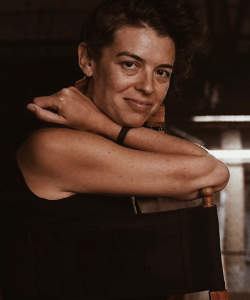A Reading With Lilly Dancyger, Gina Frangello, and Jeannine Ouellette
In this virtual reading hosted by Magers & Quinn Booksellers, authors Lilly Dancyger, Gina Frangello, and Jeannine Ouellette read from their memoirs and discuss the similarities between their writing processes. Dancyger’s Negative Space (Santa Fe Writers Project, 2021) and Frangello’s Blow Your House Down: A Story of Family, Feminism, and Treason (Counterpoint Press, 2021) are featured in Page One in the May/June issue of Poets & Writers Magazine.








